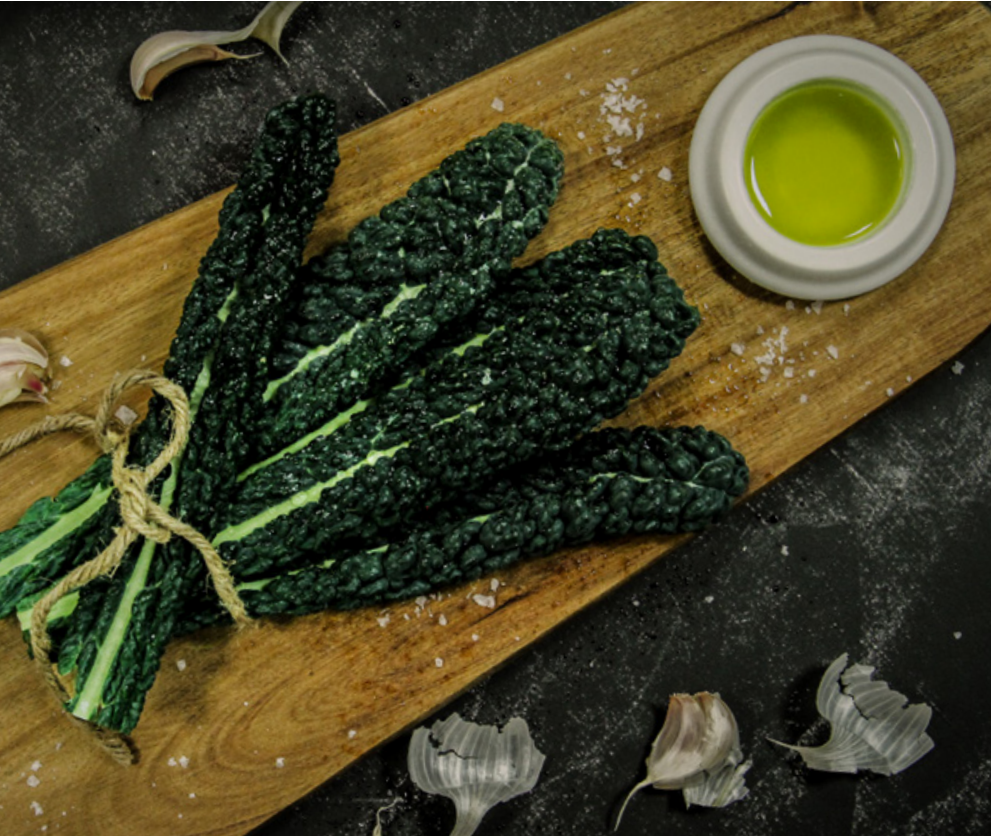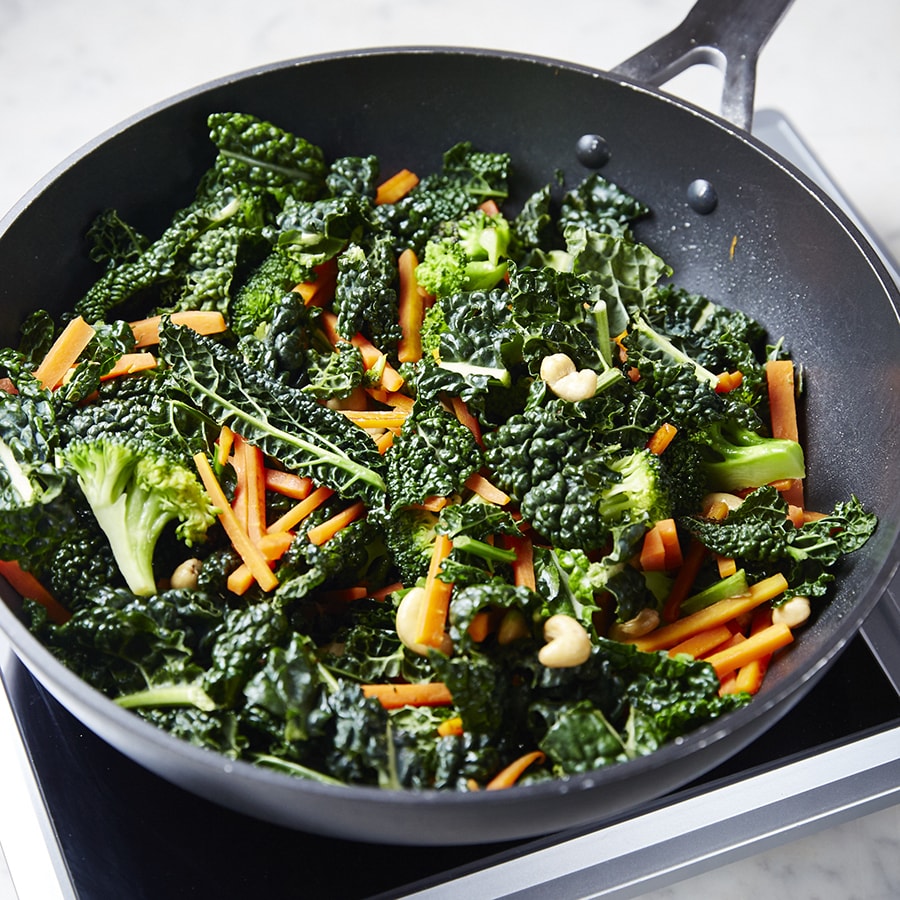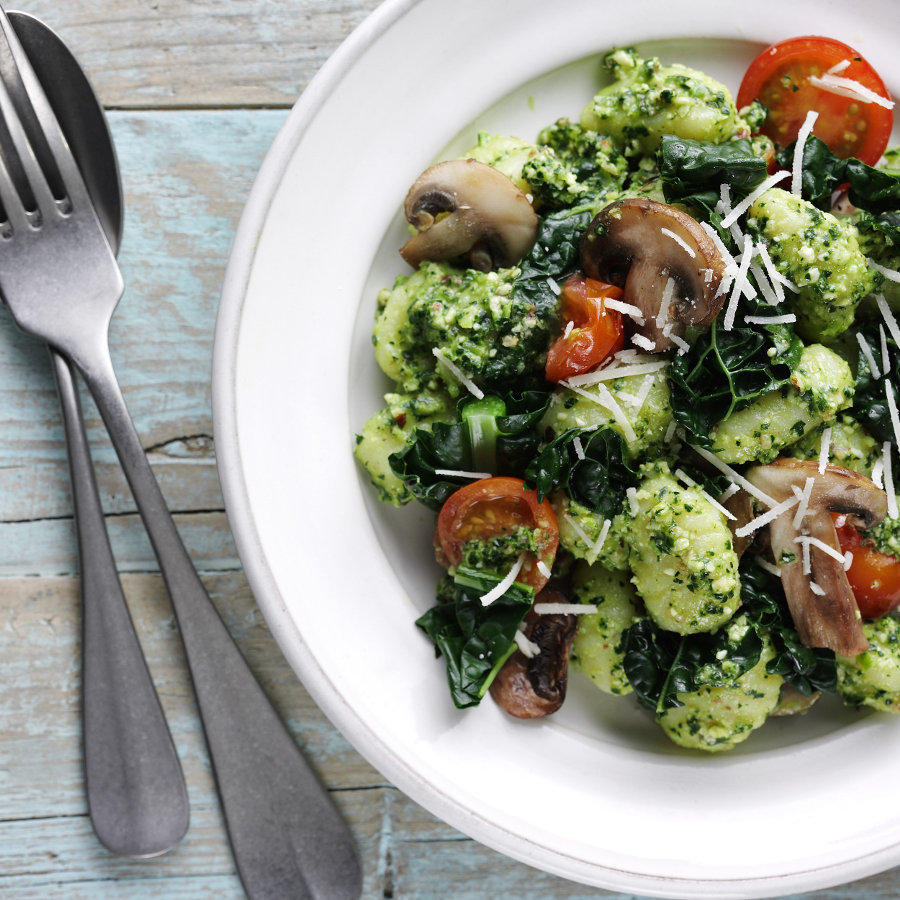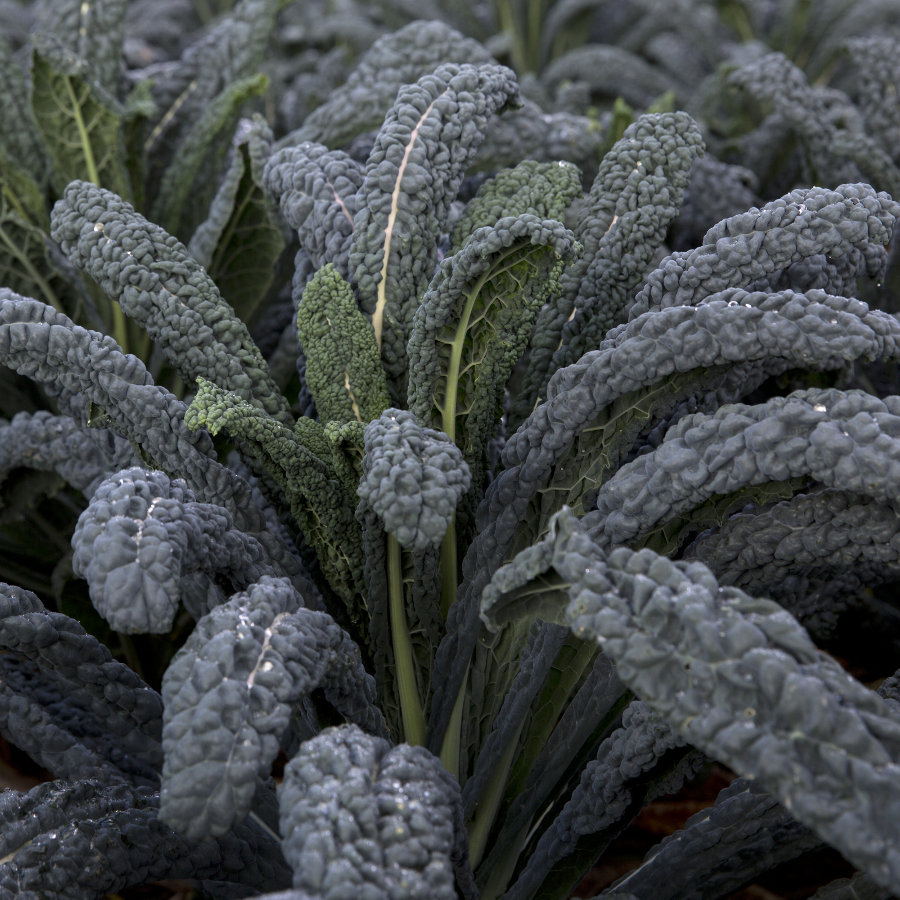
What is Cavolo Nero?
Cavolo nero is a brassica that is closely related to kale. So, if you love kale, you are sure to love cavolo nero too! First grown in Italy in 600BC, for most of the year British cavolo nero is now grown in the rich soil of Lincolnshire.
Thanks to its Tuscan heritage and its very distinctive long, dark leaves, cavolo nero is also known as Tuscan kale or more commonly black kale or black cabbage.
Cavolo nero is available, chopped and ready to use from most leading supermarkets and can be used in exactly the same way, and more, as kale.



